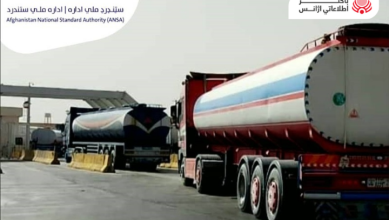
Saturday, February 25, 2017
Kabul (BNA) The Government of Japan has announced a new project to assist the National Unity Government of Afghanistan to make Afghan cities safe, resilient and sustainable by reducing disaster risk, human and economic losses, a statement from the Japanese diplomatic mission said on Thursday.
The project would be executed through the technical assistance of UN-Habitat, and in collaboration with Independent Directorate of Local Governance/Deputy Ministry of Municipality (IDLG/DMM), Kabul Municipality, Ministry of Urban Development and Housing (MUDH) and Afghanistan National Disaster Management Authority (ANDMA), the statement said. The project would have special impact on the life of women and girls and vulnerable people in cities of Kabul and Mazar-i-Sharif. The relevant documents for “The Project for City Resilience” were signed at the Embassy of Japan in Kabul on February 22, 2017 between Mr. Kenji EONOSHITA, Charge d’ Affaires ad interim of Embassy of Japan to Afghanistan and Mr. Tim McNair, Country Program Manager of UN-HABITAT with the witness of H.E. Minister of MUDH Sayed Sadat Mansour Naderi, H.E. State Minister for Disaster Management and Humanitarian Affairs Wais Ahmad Barmak, H.E. Acting Director General of IDLG/Deputy Minister of Municipality Abdul Baqi Popal, and H.E. Acting Mayor of Kabul Municipality Abdullah Habibzai.
The project, approximately worth USD 3.3 million, would benefit about 4.2 million citizens in two cities through developing and implementing City Resilience Action Plan. City resilience would be enhanced through the analysis of city risk and resilience, disaster risk reduction campaigns and improvement of critical infrastructures, such as improving canal/river bank, drainage system, and vulnerable bridges and shelters. The project would directly benefit about 54,000 people in target communities by implementing Community Resilience Action Plan which will strengthen the capacity of targeted urban communities, to prevent and reduce risk, and to prepare for disaster. Communities will enhance its resilience through community-led activities, such as disaster drills, making schools/clinics resilient to earthquake and reinforcing vulnerable housings. It would also support capacity development of Afghanistan government for city resilience including developing building code and technical guidelines for housing. “The expected start date of the project is April 01, 2017 and will be completed on March 31, 2019.” Japan has been assisting Afghanistan’s nation building efforts in various fields including security, health, culture, humanitarian assistance, agriculture, infrastructure and its capacity development.




